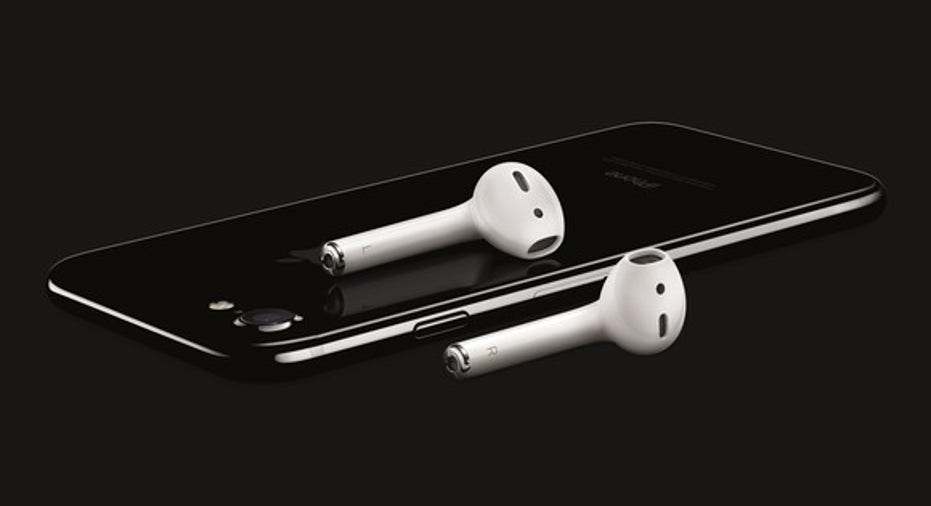Why Are Apple Inc. iPhone Sales Dropping in China?

As I dug into Apple's (NASDAQ: AAPL) most recent quarterly filing,I noticed something interesting with respect to the company's iPhone business, which made up 63% of the company's net revenue in the most recent quarter and 67% of revenue over the past six months.
Apple reported iPhone sales increases in four geographic regions: Americas, Europe, Japan, and Rest of Asia-Pacific. However, the good iPhone news in those regions was substantially offset by severe weakness in China, where the company's revenue dropped 13% year over year from about $12.5 billion to around $10.7 billion.
Image source: Apple.
Let's consider why Apple may be experiencing such dismal results in a country that Apple CEO Tim Cook once predicted would be the company's largest market.
Tough competition
Apple has faced intense competition in the China smartphone market for quite some time and has only gotten fiercer in recent years. Companies such as Xiaomi, OPPO, Vivo, and Huawei are aggressively attacking this market by trying to offer devices that are jam-packed with whiz-bang features while selling them at relatively low prices.
Apple's current iPhone models are certainly no slouches when it comes to hardware quality and engineering. In fact, I'd argue that the iPhone 7 Plus is probably the best smartphone in the world, all things considered. But I don't think that quality internal features and engineering are enough to really stand out in China's smartphone market.
For example, while Apple has largely stuck to the same basic shape for its iPhone models for three years, local China-based smartphone vendors have been endowing their flagship devices with visually and aesthetically obvious features such as curved OLED displays,smartphones with high screen-to-body ratios, and alternative materials, such as ceramic.
In addition to putting out smartphones that are, at least at first glance, more visually interesting than the now three-year-old design Apple has continued to field, the smartphones sold by local Chinese brands also seem to have another advantage: price. Apple's competition in this region probably doesn't expect anything close to the gross profit margin Apple expects.
That means these vendors can, on paper, tout similar hardware specifications to Apple's iPhone models while offering these devices at lower costs.
In addition, while this discussion has centered on premium smartphones, I suspect another part of Apple's problem in China is that mid-range and even low-end smartphones are quickly becoming "good enough" for many users. Since Apple doesn't really participate at those lower price points, to the extent that China smartphone growth is driven by those price points, the lower Apple's market share in the region stands to go.
Here's what Apple can do
To remedy its issues in China, Apple's best bet is to put out products so compelling that they help Apple grab share within the high-end smartphone market within Greater China and thatare so compelling they help to grow the high-end market.
What do I mean by that? Well, if a customer looks at an expensive iPhone and a much cheaper mid-range phone and decides that it's not worth shelling out the extra for the iPhone when that mid-range device will do the job well enough and possibly offers a similar look and feel, that's a loss for Apple.
But if Apple can build devices that are so unique and feature-rich that a customer simply wants the expensive iPhone even though the mid-range one will perform adequately -- in other words, if it can make what amountsto "luxury" smartphones that might be viewed as status symbols --then the company could revive its iPhone sales performance in Greater China and even accelerate its iPhone results in the rest of the world.
10 stocks we like better than AppleWhen investing geniuses David and Tom Gardner have a stock tip, it can pay to listen. After all, the newsletter they have run for over a decade, Motley Fool Stock Advisor, has tripled the market.*
David and Tom just revealed what they believe are the 10 best stocks for investors to buy right now... and Apple wasn't one of them! That's right -- they think these 10 stocks are even better buys.
Click here to learn about these picks!
*Stock Advisor returns as of May 1, 2017
Ashraf Eassa has no position in any stocks mentioned. The Motley Fool owns shares of and recommends Apple. The Motley Fool has a disclosure policy.



















